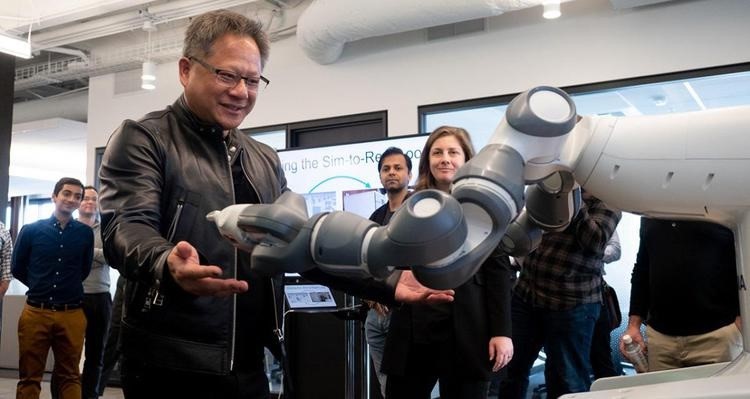With the rapid development of science and technology, artificial intelligence (AI) is gradually penetrating into all aspects of our lives. In the field of gaming, NVIDIA's DLSS (Deep Learning Super Sampling) technology has undoubtedly become a model for AI applications, leading an unprecedented revolution.
DLSS: A leap forward in performance and image quality
DLSS intelligently optimizes gameplay in real-time by leveraging the Tensor Cores in GeForce RTX graphics cards. DLSS is able to significantly improve frame rates while maintaining image quality compared to traditional graphics rendering techniques. According to NVIDIA's official data, DLSS technology can increase game performance by 2x or even 4x, which means that gamers can enjoy a smoother gaming experience under the same hardware conditions.
AI-Generated Content: A New Era in Game Development
Huang's remarks at COMPUTEX 2024 revealed the future of DLSS technology – AI-generated game content. Currently, NVIDIA has been able to use DLSS to generate textures and objects, and the quality has been improved. The implementation of this technology can not only shorten the development cycle of the game, reduce costs, but also bring players a richer and more realistic game world experience.

Figure: NVIDIA's DLSS technology is undoubtedly a model for AI applications
A breakthrough in texture compression technology
In terms of texture compression, NVIDIA's new neural network-based technology is expected to increase the compression ratio by up to 16x, far exceeding the 8x limit of traditional methods. This breakthrough means that the use of video memory can be drastically reduced while maintaining texture quality, paving the way for the development and popularization of high-quality game content.
The Rise of AI NPCs: A New Level of Interactive Experience
What's even more remarkable is that NVIDIA's GEAR research group is exploring the generation and application of AI NPCs. These AI-powered NPCs will no longer be simple script executors, but intelligent entities that can autonomously learn, adapt, and respond to player behavior. This will not only greatly enrich the interactive experience of games, but also open up new possibilities for the development of game AI.
Overall, the continuous advancement of DLSS technology indicates that the use of AI in the gaming field is getting deeper and deeper. From performance improvements to content creation to innovations in interactive experiences, DLSS technology is gradually reshaping our gaming worlds. As technology continues to evolve and improve, there is reason to believe that the games of the future will be smarter, more vivid, and more engaging.






